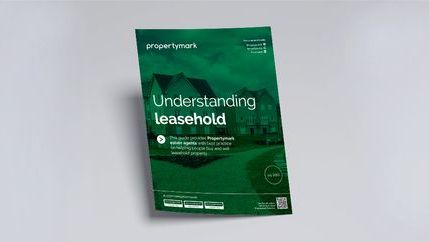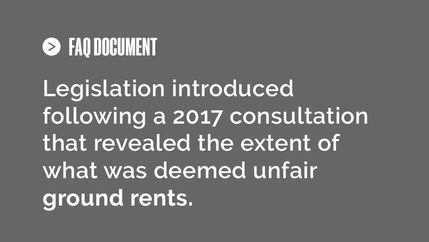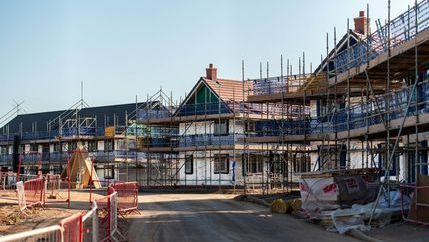Commitment to the Leasehold and Freehold Reform Act 2024
Future developments
Matthew Pennycook MP outlined in a House of Commons debate that the UK Government will move quickly to enact the remaining Law Commission recommendations regarding:
We welcome this commitment but understand that implementing the recommendations will be complex and require secondary legislation to outline finer details. We will continue campaigning for greater transparency around timescales and provide an update to members when we know more.
New Leasehold survey
To continue gathering evidence, Propertymark's survey, Leasehold: Still a Life Sentence?, is looking to gather insights from estate agents, managing agents, and leasehold property owners on the biggest challenges in leasehold reform. Your feedback will help shape our lobbying efforts and ensure that policymakers understand the real impact on agents and consumers.
Member-backed campaigning delivers real change as Commonhold reform finally arrives
The UK Government has published the Draft Commonhold and Leasehold Reform Bill and launched a consultation on banning leasehold for new flats, marking a significant moment in the long-running debate over leasehold reform. For Propertymark, this represents a major milestone after nearly 10 years of sustained campaigning against leasehold, poor practices, and unfair ground rents.
Leasehold Research
Leasehold stats
Cladding stats
Leasehold training and resources
Download our leasehold FAQs (members only) or attend a training course to further understand leasehold legislation and what you need to do.
Understanding leasehold
This guide provides Propertymark estate agents with best practice on helping people buy and sell leasehold property. Estate agents have a level of responsibility under the Consumer Protection Regulations to pass on all material information in respect of a lease.
FAQs: Leasehold Reform (Ground Rent) Act 2022
The Leasehold Reform (Ground Rent) Act 2022 restricts ground rents on newly created long residential leases for single dwellings such as a flat or house to a token one peppercorn per year, effectively restricting ground rents to zero financial value.
Understanding leasehold block management
Get to grips with leasehold block management in this beginner-friendly course.
Campaign successes
Over our years of campaigning to address the leasehold scandal, we have seen some legislative wins for leaseholders.
Campaigning from Propertymark helped lead to the introduction of the Leasehold Reform (Ground Rent) Act in June 2022, ending ground rent for most new long residential leases granted for properties in England and Wales.
In 2018, Propertymark provided evidence to the House of Common’s Housing, Communities and Local Government Committee’s Leasehold reform inquiry and the UK Government’s consultation on making the leasehold market fairer. We were a member of the Welsh Government’s Task and Finish Group set up to reform the leasehold sector. Its report which identified failings in the leasehold system was released in July 2019.
In 2021, Propertymark’s research as published in our Leasehold: A Life Sentence report was quoted in Parliament by Baroness Andrews during Second Reading of the Leasehold Reform (Ground Rent) Bill to highlight issues around ground rents and unreasonable service charges.
Leasehold changes take effect
The Leasehold Reform (Ground Rent) Act 2022 takes effect on 30 June 2022, ending ground rent for most new long residential leases granted for properties in England and Wales.
After lobby for its introduction as part of our work on leasehold issues, the UK Government introduced a New Homes Ombudsman via the Building Safety Act 2022.
Propertymark put forward proposals for an ombudsman scheme for purchasers of new build homes and for all new house builders sign up to the Consumer Code for Home Builders in our research, Leasehold: A Life Sentence.
We also outlined our concerns and put our proposals forward to the House of Commons Housing Communities and Local Government Committee inquiry into leasehold reform and the UK Government’s call for evidence into improving the home buying and selling process.
Bringing new homes under the scope of an ombudsman allows for a level playing field across the entire house buying process and will ensure the selling activities that developers are engaging in are of a consistently high standard.
Ombudsman Service launches with Code for housing developers
Barratt, Taylor Wimpey, Redrow and Bellway are among 100 firms signed up to a new Code of Practice, following the launch of a new Ombudsman Service. The Code has been developed in response to growing pressure surrounding complaints from owners of new build housing that issues fail to be resolved effectively.







